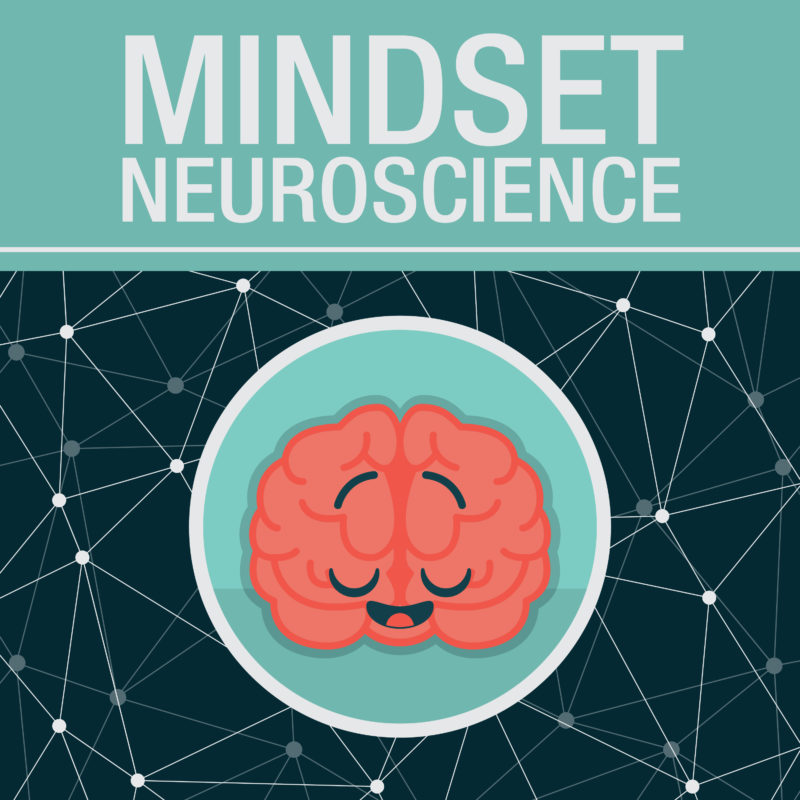“Love is at once an affirmation and a transcendence of who we are.”
― Esther Perel
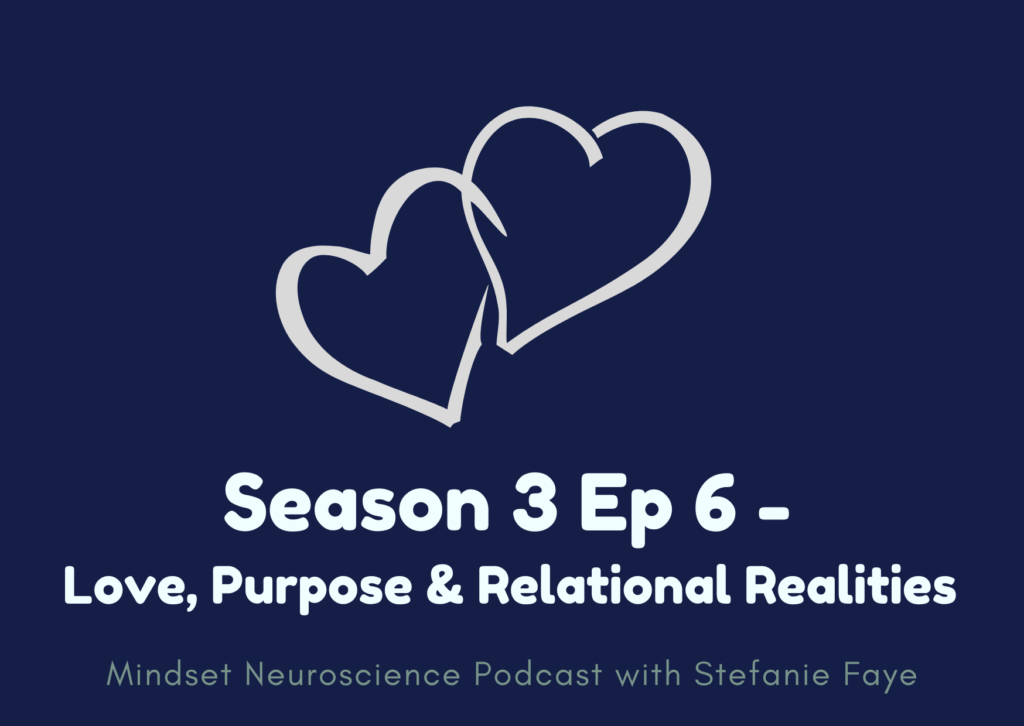
“And what is true for human beings is true for every living thing: all organisms require alternating periods of growth and equilibrium. Any person or system exposed to ceaseless novelty and change risks falling into chaos; but one that is too rigid or static ceases to grow and eventually dies.
This never-ending dance between change and stability is like the anchor and the waves. Adult relationships mirror these dynamics all too well. We seek a steady, reliable anchor in our partner. Yet at the same time we expect love to offer a transcendent experience that will allow us to soar beyond our ordinary lives. The challenge for modern couples lies in reconciling the need for what’s safe and predictable with the wish to pursue what’s exciting, mysterious, and awe-inspiring.”
― Esther Perel, Mating in Captivity
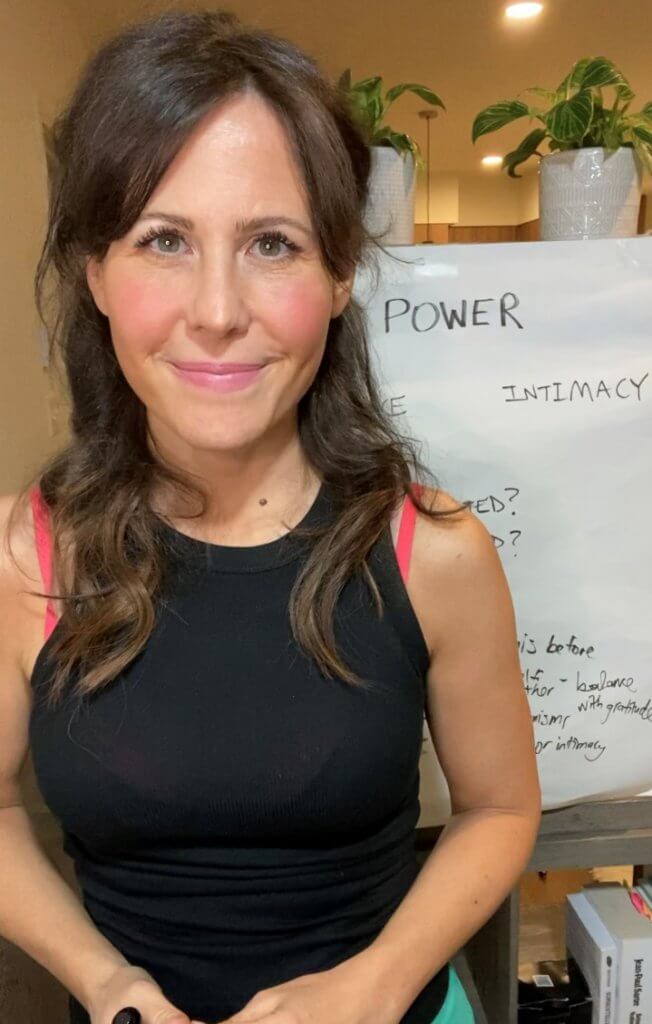
Our past influences our present
No matter how strong a connection we feel to someone, there is always a chance that our past experiences and insecurities may influence the current experience. To increase our chances of honoring the incredible potential of relationships, we must stay open to learning about how our own distortions from past experiences may lead us to think and behave in ways that close off connection. Closing off connection to ourselves and to others can lead us to stop exploring the world around us and hold us back from engaging in incredible experiences that are always available to us. Having that sense of exploration, curiosity and wanting to be challenged are essential for building healthy connections, units and systems.
A connection to someone who shares a passion for growth and evolution, a shared vision and ‘dialect’ for how they see and understand the world can give us a chance to be a part of a partner-family system who can help us feel at home AND energize us with fuel and fire to soar beyond our ordinary lives into awe-inspiring pursuits. But we must stay open to learning about how our own patterns, thoughts and behaviors contribute to the overall functioning of the unit. This can be said for intimate partnerships and family units, as well as a community and team.
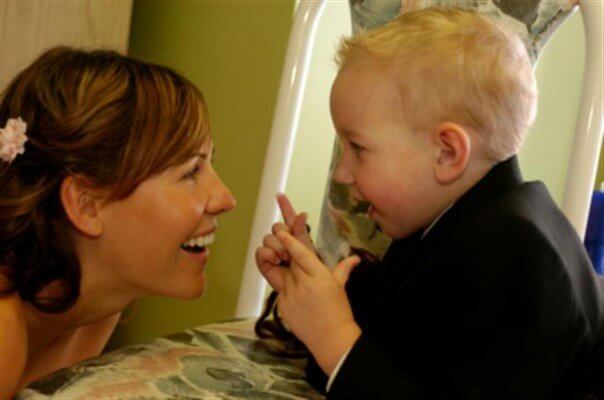
The more deeply we can experience life in all its forms and moments, the more deeply we can experience another person.
Intimacy and bonding are not just about how you are when you are with a person or people, but how engaged in life and exploration of your own world when you are apart. What can lead many relationships into a feeling of boredom, stuckness, or resentment is 'self-abandonment'... an abandonment of what truly brings us joy and lights us up, and an abandonment of paying attention to our innermost wounds and places for healing. Building a sense of love for yourself and wonder and fascination with life is what can help create a life-enhancing relationship for both people.
When we get clear about what our deepest needs and desires are and we find ways to support and nourish them within ourselves, we then get to share that with someone*. They get to benefit from a perspective of happiness and sources of joy that are different than their own. When each person in a partnership and family get better at honoring what regulates their nervous system and enhances their life force, they each get to offer that to another. When each person does what they can to understand their own patterns, the partner and family unit moves into a space of optimization - rather than self-protectiveness and depletion. This requires a desire to learn and update our behaviors.
Unfortunately, because of past patterns and experiences, many people can get stuck or distracted by insecurities and doubts that start to close off the desire and ability to genuinely learn, connect and turn inward to see ourselves more clearly.
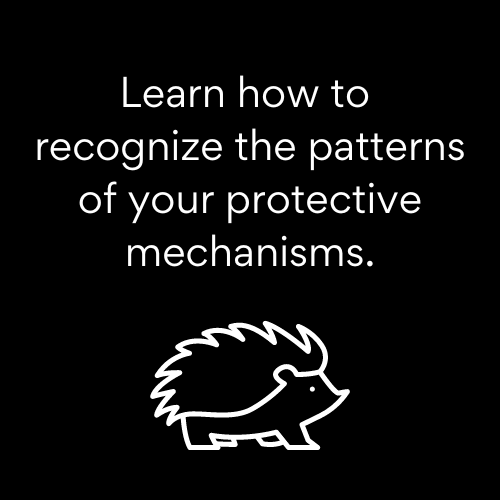
Learn how to recognize the patterns of your protective mechanisms.
No matter what our past experiences have been, they are not occurring now. This means that:
- if we are continuing to act in ways that are repetitive from our past relationships (or repetitive within our current relationship), it means we are not updating our responses.
- If this is happening, it is because we are allowing a belief based on our past experiences to create a filter (an attentional mechanism) that distorts how we perceive the current person.
- When we do this, the past-based distortion will trigger internal reactions that lead us to behave in a way that pushes the person away, overwhelms them or disconnects us from them.
- We then get ‘confirmation’ that our past keeps repeating in the present and we'll never figure out or find the 'right' relationship.
- This can create a sense of powerlessness that we can’t do anything to not have the past repeat itself .
If repetitive unhealthy patterns are happening in your relationships, it generally means you are reacting to your own perceptions that are embedded with a history of past pain. This is in contrast to staying open to 'live data'. When we are stuck in cycles of behavior that do not achieve our desired internal state, this often means that we are having difficulty updating our internal dialogue (and corresponding physiological distress response).
We cannot control another's thoughts and emotions and corresponding patterns of behavior (all of which is imbued with their own past and self-protective mechanisms). We also can't 'make' someone be the right fit. Relationship experts point to challenges that can happen if for example, one person is very extroverted and social, while the other isn't. There are some dynamics that may not align with our highest vision for life or with our most optimal functioning.
What we can always aspire to, however, is a new level of mastery over our internal state in response to events and people.
The more we can do this, the more access we have to highly complex forms of intelligence because our system is not restricting energy flows towards self-preservation. The more complex we get in our intelligence, the more we find ways to fine-tune our behaviors and responses, which then creates more 'choice-points' within our relationships and within ALL the moments of our daily lives.
This mastery over our inner dialogue, thought patterns and behaviors means we are engaging in live data, in the constantly emerging and updating information flows that surround us. This is important because anxiety and distress often narrow our attention to focus only on what is a perceived threat. In our relationships and human interactions, because we have a lot of unhealed and unacknowledged pain from our past, we often will over-perceive that the current situation is the one and only reason for our stress, anger, shame, etc. The challenge with this is that it narrows our focus so tightly and rigidly on every signal and gesture of that person, that we neglect two important things:
- our internal state: there are deeper aspects to our internal state that when we pay attention to, we can get very clear on what matters to us and what we need to stand up for, have boundaries about and honor. These are in contrast to internal states that are being triggered by limiting self-beliefs and past-based predictive distortions of another person*
- the many other parts of our experience that include other people, other sources of love, flow, energy, etc. that would help us regulate our nervous system so that we could respond in ways that may increase the chance of an outcome we actually desire (which is always tied to a regulated internal state*)
*(this is an incredibly complex topic that I am breaking down in my book and plan to include in future retreats and content)
These challenges are at the heart of self-abandonment.
They keep us from truly learning about our own unhealed issues, and they also keep us from truly understanding another person. Being intentional about seeing things from your own higher and more mature perspective while also hold another's perspective at the same time keeps you open to the information that can help enhance the connection, rather than trigger fears of rejection or neediness. Repetitive patterns of insecurity will continue to repeat until we become aware of this. And even then, they are still a challenge to undo. I very recently saw one of my repetitive patterns in a way I hadn't seen before. It's a continuous learning process.
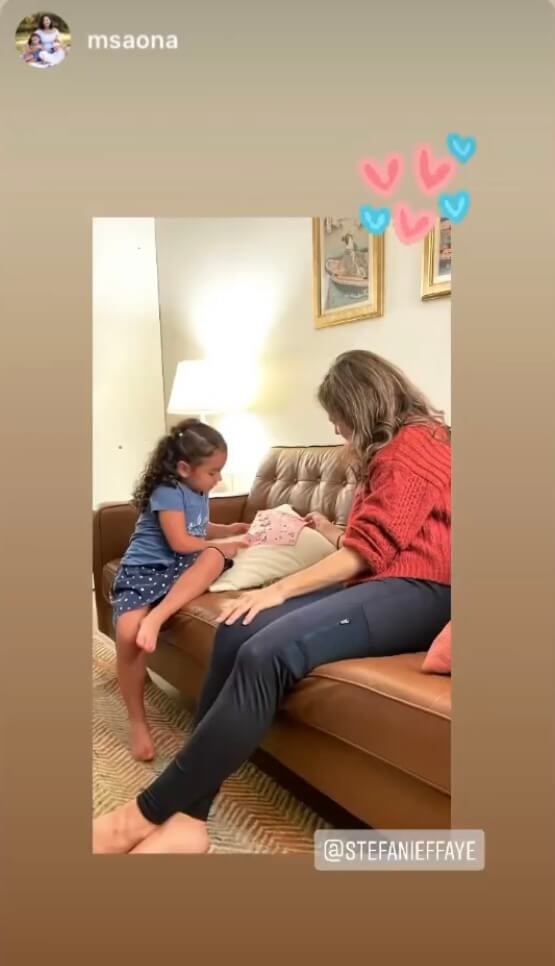
Do your best to stay open to learning
Because relationships are a learning journey, it means that it won't always feel like we have it figured out.
This can work to our advantage: it means we get to acquire the skills of patience and long-term forecasting. Creating a new track record with someone that helps you defy the odds from your past is a challenge. Understand that both you and the other person carry wounds from many past experiences and that these will come up. Use those challenges to become more understanding of yourself and others. For me, trying to break free from the intergenerational patterns that were modeled to me is part of a spiritual journey - one that has opened up more self-compassion and compassion for others.
When we encounter someone who electrifies us and grounds us at the same time, who truly speaks our language, who 'gets' how our mind works and what we're trying to achieve - it can feel like we are on delicate waters because we don’t want to mess it up (this is something I am currently experiencing). But to truly grow, we need to stay in the ship and learn what we can from the waves, the ups and downs, and our own thought patterns as they relate to our past. A feeling of reliability doesn't come from only smooth sailing - it comes from the passage of time and the agency that comes from continuously learning from and overcoming challenges.
To truly grow, we must also be willing to be vulnerable with a person so that we can build a track record of surviving and growing from the discomfort and uncertainty of vulnerability. Vulnerability relates to a surrendering of control. It can come in the form of expressing our desires, nervousness and invitations to someone - all with the possibility of them saying no or not reacting how we may want. If their response is certain, there would be no vulnerability, no risk. While certainty is also nice to have, what relationships offer (especially intimate ones with people who we don't want to lose) is an ability to face that fear of surrender. It is a crossing of a threshold of our deepest fear of being rejected by someone we value... as we approach that threshold, we may feel fear, or we may have patterns of quickly distracting ourselves or numbing out in order to not feel the nervousness that comes from wanting to be close to someone. If we can learn to trust our ability to survive whatever happens, this can allow us to put down some of our protective mechanisms and cross that threshold.
Trusting our ability to survive whatever happens comes in large part to our level of self-love.
The more we pay attention to nurturing our love of life and love of self, the healthier our narratives become. This allows us to make actual movements, invitations, expressions and initiations of letting someone know we want to be close to them and with them, that we want to begin or continue a journey with them - and them exclusively (this is part of human pair-bonding, which I'll go into in another article). If we only have thoughts and feelings about wanting to be close, but we never express them to someone, we do not cross that threshold of vulnerability. As scary as it is, risking vulnerability is the only way we can 'prove' to our nervous system that we can do it and survive - and once we survive it even one time, our brain-body algorithm now has evidence that it can survive. Without this, algorithm stays in the parameter of 'vulnerability = risk of rejection = death'.
That vulnerable action (words, gestures, invitations, etc.) is how a partnership grows - without it, each person stays in their thoughts and feelings for wanting closeness, but not lowering their protection enough to really let the other person know it. That protective dance keeps the relationship at a protective level, but doesn't move it into a level where both people can begin to feel more fearless and brave with each other. I have seen many relationships play this out for years, or even decades.
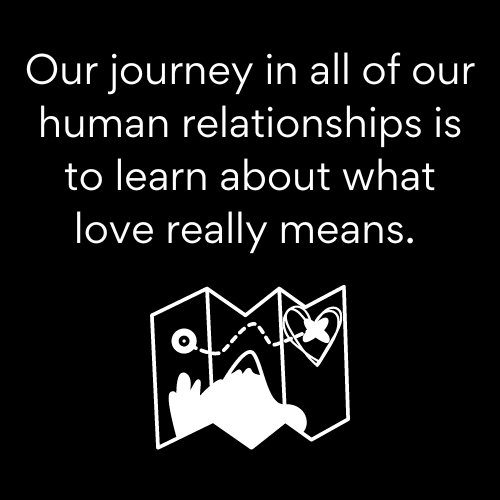
Our journey in all of our human relationships is to learn about what love really means.
Not a surface level kind of love. The kind of love that comes from us deeply loving ourselves - and then sharing that love we have for ourselves and for the gift of life with someone else.
It's scary to be vulnerable. But if we don't at least try, if we don’t give a rare, deep connection a chance to grow in longevity and endurance, and give it our best attempts, we may always wonder ‘what if’. If a connection makes you feel like you found home and makes your heart flutter with excitement, stay true to letting it expand into its potential. Life is short. Deep connections are rare. So many of us choose to protect ourselves rather than stay open to the kind of learning love can bring us - even when we risk rejection or embarrassment.*
It’s a process that requires letting go of our self-protective shields - a level of trust that we can handle opening our hearts completely, and that in the opening of our hearts, we actually find our most reliable strength and power. It’s a learning process that requires trial and error, and compassion for each person continuously trying to work through their own defense mechanisms, their own past hurts and self-doubts.
All of this can be said for a relationship, but also for a path, mission or project - something or someone that ignites your heart.
Many of us lacked models of secure attachment growing up. Many of us saw a lot of self-abandonment as well. So it's up to us to turn to experts and positive examples in order to break the cycles passed down to us. Due to how our nervous systems and brains are built and wired according to our social matrices, learning how to love, self-regulate and co-regulate in healthy ways would help the human species reach a new level of evolution.
Be a model for others: the self-transcendent purpose of relationship
When we have a purpose that is to serve something bigger than ourselves, this can help us stay open to learning and evolving. What is extremely important to me about romantic and marriage partners learning how to navigate their past experiences and doubts is that I believe it's our chance to pass this on to children - to our next generation of leaders, lovers and learners. It is the root of healing intergenerational trauma. Children MUST have models of psychological safety and emotion regulation in order to build the brain networks that will help them regulate themselves and maintain healthy relationships in their own lives. They benefit greatly from having models of secure partnership and from the unique sensitivities and nurturing abilities each caregiver can bring into their lives. They also benefit from seeing high levels of Self-Love from each individual person they are around - this helps them build skills for being able to regulate their own systems when needed, so that they can be healthy partners for others.
If both people are centered on a compass of values and joint vision, this can help foster a mission that consists of looking at each other and also looking up to ensure that the system is still keeping its sights on its North Star and expanding into mystery and the unknown.
Looking up means that we need to continually keep engaging in life on our own - continuously allowing ourselves to fall in love with more and more of ourselves, and with life, and with all the people who offer us opportunities to be loving.
Looking at each other means that each person knows they have each other's back. It means truly being on the same team, and staying open to learning and supporting the deeper layers of a person that may be part of their past wounds and shadows.
Allow your commitment to the other person, to learning (instead of self-protecting), and to expressing your love as a platform to hold the relationship in a safe enough space that it can endure over time. Only with long periods of time, safety and joint vision/mission can a system (in this case the partner-family-unit) learn how to navigate the waters, recognize patterns, make adjustments.
Because of their intimate nature, relationships offer us a chance to update our algorithms from our past.
One key is in acknowledging the paradox of the human need for both connection AND freedom, stability AND change: this paradox is the pillar of all attachment theory.
The video below is a short clip of this paradox of attachment:
and learn more about it in this podcast: Season 2 Ep 11, The neuroscience of attachment and emotion regulation
We live in a vibrational-relational reality
I also believe that the world will benefit from unexpected partnerships... people who come from different experiences, communities... but who align and resonate with what they want to bring into the world. In doing so, they form a bridge of understanding that connects realms that may not otherwise overlap. Brilliant new beginnings come from a connection of the unexpected.
I honestly feel that this is the NEXT FRONTIER of human endeavors and achievements: mastering the realm and the paradox of what it means to be in relationship. How do we stay purpose and mission-driven, maintain our sense of autonomy, individuality, joy and curiosity, and feel the deep transcendent state of true emotional and spiritual intimacy with another. This is not just a vibrational reality, it is a relational reality.
References
Affect Regulation and the Origin of the Self, Alan Schore
The Reconstruction of Trauma: Its Significance in Clinical Work, Arnold Rothstein M.D.
Mating in Captivity, Esther Perel
***please note that the suggestions and exercises offered in these articles, podcasts and videos are not offered as a substitute for professional mental health care or medical care and are not intended to diagnose, treat or cure any mental health or medical conditions.

